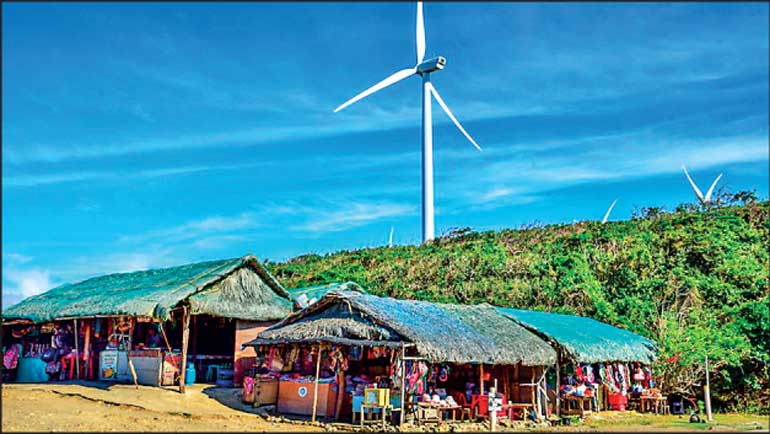Thursday Feb 19, 2026
Thursday Feb 19, 2026
Saturday, 19 March 2022 00:29 - - {{hitsCtrl.values.hits}}

MANILA, PHILIPPINES: Asian Development Bank (ADB) President Masatsugu Asakawa today reiterated the importance of a just and inclusive transition to a low-carbon future and stressed the need for urgent collective action against climate change at an event organised under the G20 Presidency of Indonesia.
“The battle against climate change will be won or lost in Asia and the Pacific,” said Asakawa at the Science20 (S20) High Level Policy Webinar on Just Energy Transition. “To succeed, we need to build effective knowledge on the energy transition that is grounded in scientific evidence, and we must ensure that the transition is just and inclusive.”
Asia and the Pacific are vulnerable to the most destructive effects of climate change, which continue to worsen. Combined with the impacts of the coronavirus disease (COVID-19) pandemic, climate change has been especially devastating for poor and vulnerable groups, women and girls, and small island nations.
The scale of the energy transition required will create opportunities but could also negatively impact workers and communities. Integrating the concept of just transition into climate action is therefore paramount to ensure no one is left behind and that the benefits of a low-carbon and resilient future are shared by all.
Last year, ADB elevated its ambition to provide $ 100 billion in cumulative climate finance to its developing member countries (DMCs) from 2019 to 2030. The bank also launched its Energy Transition Mechanism to accelerate the retirement of coal power plants, including Indonesia and the Philippines as pilot countries.
Furthermore, ADB has joined with other multilateral development banks in committing to a just transition that supports DMCs to move toward net-zero emission economies.
To support a just energy transition, Asakawa reiterated the importance of accounting for the unique challenges faced by individual DMCs as they transform their energy systems. ADB will support planning that involves all stakeholders, establish strong institutional frameworks to address the social and economic impacts of the energy transition, and build effective knowledge that is grounded in scientific evidence.
ADB’s 2021 Energy Policy, adopted last October, articulates the bank’s commitment to a just energy transition. The policy formally reflects the bank’s decision to refrain from coal financing and supports universal access to reliable, affordable, and sustainable energy across the region.
ADB, the Indonesian Academy of Sciences, and Universitas Indonesia partnered with the S20 engagement group of the G20 to organise the high-level policy webinar which was attended by world leaders and scientists among others. Indonesian President Joko Widodo, chair of this year’s G20 Summit, delivered a keynote address at the event.
ADB is committed to achieving a prosperous, inclusive, resilient, and sustainable Asia and the Pacific, while sustaining its efforts to eradicate extreme poverty. Established in 1966, it is owned by 68 members — 49 from the region.